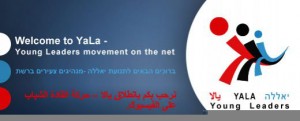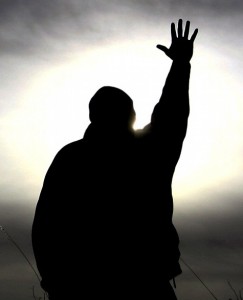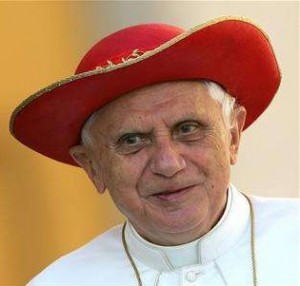 When historians someday summarize the “Arab Spring” protests, be sure that the Facebook social networking site will get prominent mention.
When historians someday summarize the “Arab Spring” protests, be sure that the Facebook social networking site will get prominent mention.
In Tunisia, Egypt, Libya, Yemen and Syria, this hard-to-censor, impossible to stop digital electronic grapevine has been critical to liberty-seeking rebels as a news source and a means to organize rallies.
It also has proven a catalyst to civil war and bloodshed, of course, as the dictatorial governments in those Muslim countries have tried to snuff protests.
But perhaps one of this trouble world’s longest-running, bitterest conflicts, the one between Arabs and Israelis, may have made a start toward peace — albeit a tentative one — using the same medium. Enter the YaLa-Young Leaders Facebook Page.
When I visited the site this weekend, it had some 2,700 “likes” and more than 22,000 active users, split roughly equally between its Israeli, Palestinian and other Arab “friends.” It is an open exchange, not only for the desire for peace between Israel and its Palestinian and Arab neighbors . . . but music (Shakira is big), soccer, the arts and even horseback riding in the ancient ruins of Petra.
In a land where too often exchanges between Jews and Muslims (at least what the rest of the world sees on television news) involve rocks, gunfire and bombs, it seems some of the antagonists may have found common ground . . . in cyberspace. And, this effort has the endorsement of government leaders on both sides of the Jerusalem divide.
Israel President Shimon Peres, in part, posted this:
“The young region can and should determine its destiny. The Arab Spring can become a Middle-East spring if the young will also lead the way to peaceful coexistence. Our region is full of potential in physical and human resources and if we live in peace, freedom and equality, can we turn this potential into a prosperous reality.”
Palestinian leader Mahmoud Abbas offered this:
“. . .the winds of change cannot be stopped when people, especially young women and men are pushing away all boundaries that block their free thinking, their sense of dignity and their mere existence as equal human beings living in their own societies. We now know that we can hand you the torch of the great responsibility of achieving a real and endurable peace in our region. Our message to you is to focus on the real sense of dignity, education, tolerance and acceptance of the other as equals.”
Both eloquent, to be sure. But it is within the seemingly mundane conversations on-site, from everyday Israeli and Arab youths, that you dare to hope that peace, finally, in the Middle East is not a forlorn hope.
There’s 17-year-old Dalal Awwad, who writes: “I have a dream that one day I will be able to go to school without being afraid of the soldiers on the checkpoint… or even, without having the checkpoint and the soldiers. I have a dream that I would once wake up on the sound of humming birds rather than bullets; and that when I open my eyes, I’d see Jerusalem from my window, not a wall that separates me from my city. I want to have a passport that indicates that I’m a human… that I have dignity, and I search for happiness. A human who has the freedom to move from one place to the other without being treated as a terrorist. I have a dream that I would one day stand at the shore next to the beach… that I would see the sun set like every other child does. I have a dream that I wouldn’t wake up with the fear of dying, or the fear of loosing (sic) my beloved ones for a non-ending fight. “
Nadine Firas Yaghi adds: “. . . why let myself be ruled by the corruption of the current governments? why let them influence my understanding of forgiveness, tolerance and hope! these little things that Jerusalem provides me strengthens my belief that someday i would walk the same streets and look at the same sights but with the difference that its inhabitants would have recovered from all the war memories and its fatal diseases.”
Nathan Heber expresses the hopes of many in his post: “This is the best thing I’ve seen on Facebook. For the first time in years I think there might be a chance for peace and it starts here. Keep it going. Good luck.”
To that I add, Amen, and Amin.
Yes, “Pray for the peace of Jerusalem . . .” And it may not hurt to “like” Facebook pages that struggle to make that reality, too.

